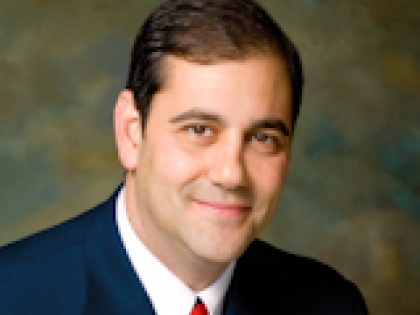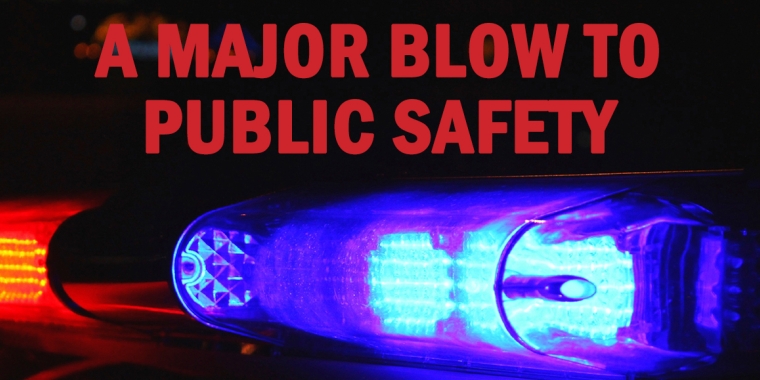
Lanza, Matteo, Borelli, and Oddo Urge City and State to Give Families Property Tax Relief and Propose Reforms To Make Property Tax System More Fair
February 23, 2018
-
ISSUE:
- Property Tax Relief
"Year after year, New York City punishes hardworking residents with out of control property taxes. Escalating property tax bills are leaving Staten Island families overburdened and in search of relief. Simply put, homeowners are tapped out. While every other county in New York State is learning to reign in property tax bills, New York City continues to heap unsustainable increases upon us. City Hall should immediately take common sense steps to bring relief to taxpayers. A 2% property tax cap and restoration of the $400 property tax rebate check program are two immediate initiatives that we can launch with City Hall's support." Senator Lanza
The Staten Island lawmakers are proposing several measures to help accomplish this: reinstating the property tax rebate; freezing property tax bills for eligible seniors; passing legislation that would reset the state-mandated assessment cap when a property is sold; and immediately empaneling a commission to study and propose reforms to the city’s antiquated property tax system.
“While the New York City economy continues to thrive, everyday New Yorkers are struggling to keep up with the skyrocketing cost of living here. They need financial relief in a big way, and they need it now. That is why we need to make a property tax rebate a top priority in this upcoming budget,” said Minority Leader Matteo. “Though there is little we can do to alter the global economic forces that drive up the cost of food or other goods, or to change federal or state tax policies, we can positively impact the lives of millions of New Yorkers by providing them with some relief on their property tax bills and fix the inequities in the system. We can help seniors and retirees on fixed incomes remain in their homes, help parents put aside a little money for daycare or education and help beleaguered families start to get out from under a mountain of debt.”
"We’re finally reaching a point where the political climate in this city will allow for a revamp of the property tax system," said Minority Whip Borelli. "So many other people are seeing what we have been saying all along, that property taxes disproportionately impact the people of Staten Island and homeowners in all of the outer boroughs, who are subsidizing millionaires because of the unfair way that properties are assessed right now. Everyone knows someone who has fled New York for other states with lower tax burdens or who’s struggling to hold on to their standard of living in New York; we owe it to these people to fix the inequities in the way that property taxes are currently assessed, and to provide a clear, predictable formula for homeowners in this city so that they can plan to spend their futures here in New York."
“Homeowners, particularly our seniors, continue to ask, ‘Why are my property taxes always going up?' A scarier question is 'What eventually happens to folks who each year have to dedicate more and more money to paying their property tax bills, even if they are on a fixed income?' This is already happening today and worsens each year. So, for all the talk recently about ‘fairness,’ I believe fairness dictates that we provide a more sensible property tax structure, and one that offers relief to property owners who continue to bear a great burden each year as they watch their property tax bills continue to rise," said Borough President Oddo. “The middle class, particularly our seniors, continue to face increasing pressures that could force many to leave the city they love if we don't do something to alleviate their burden. Let's get property tax relief done. It's the right and fair thing to do."
State Senator Andrew Lanza said, "Year after year, New York City punishes hardworking residents with out of control property taxes. Escalating property tax bills are leaving Staten Island families overburdened and in search of relief. Simply put, homeowners are tapped out. While every other county in New York State is learning to reign in property tax bills, New York City continues to heap unsustainable increases upon us. City Hall should immediately take common sense steps to bring relief to taxpayers. A 2% property tax cap and restoration of the $400 property tax rebate check program are two immediate initiatives that we can launch with City Hall's support.
Ideas to Fix Out-of-Control Property Taxes
New York City continues to be the most expensive city to live in the country – driven largely by the widening gap between income and the cost of housing. Property taxes have risen a staggering 60 percent since 2011 and property tax revenue is on target to eclipse $26 billion in Fiscal Year 2018, which ends in June. Meanwhile, median wages have grown just over 13 percent during the same time frame, from Fiscal Year 2010 to 2017, according to New York State Department of Labor statistics.
To help alleviate this problem, Matteo, Borelli and Oddo are advocating the following measures:
- Empanel a Property Reform Commission
For years, political leaders, government watchdog groups and public policy think tanks have acknowledged New York City’s property tax system is flawed, inequitable and inconsistent. Properties with similar market values pay vastly different tax bills, both within tax classes and among tax classes; the methods of assessing property values are opaque, convoluted and seemingly unrelated to real world sale prices; and middle-class and working-class homeowners pay considerably higher property taxes relative to owners of high-priced, luxury co-ops or condominiums.
To tackle this problem, Matteo and Borelli asked the Mayor to empanel a bipartisan property tax reform commission comprised of various stakeholders in December 2016. The commission would exam the inequities and irregularities in the manner in which property values are assessed and taxes are levied, provide a comprehensive analysis of the property tax system and recommend potential changes to it. It would require at least a year to finish its work and make final recommendations. That would be followed by public hearings. Any proposed changes to the property tax system the city decides to adopt would have to be drafted into legislation; approved by both the City Council and the State Legislature and their respective legislative committees; then signed into law by the Mayor and The Governor before they ultimately take effect.
- Issue a Property Tax Rebate:
The lawmakers are asking Mayor de Blasio to reinstate the property tax rebate. New York City homeowners received a $400 property tax rebate check between 2004 and 2009, when former Mayor Michael Bloomberg cancelled it, citing a financial crisis. The estimated cost of this rebate is between $250-$300 million.
The rebate would first require the New York State Legislature pass enabling legislation, which is currently being sponsored by Sen. Lanza of Staten Island and Assemblyman Michael Benedetto of the Bronx. Ultimately the rebate would need to be agreed upon during the city’s Fiscal Year 2019 budget negotiations, voted on by the Council and then signed into law by the Mayor.
- Freeze Property Tax Bills for Eligible Seniors
Most seniors throughout the five boroughs live on fixed incomes and struggle to make ends meet. One of the most important factors in their ability to remain in the city is a predictable annual budget. Dramatically escalating real estate markets may result in their homes being valuable but, ironically, the accompanying rising assessed valuation (AV) makes them less able – or unable - to afford to stay in them.
The lawmakers are proposing the city study and implement a property tax “freeze” for senior citizens who are Class 1 homeowners and who meet specific criteria that would include age, income, residency in New York City and time period of home ownership.
Under this program, eligible homeowners would have their property taxes frozen at a particular base year level. Until title passes to a new owner or an heir, either all subsequent tax bills would contain a deduction equal to the difference between what is owed for the current tax year and the base year. Current year property taxes would have to be paid in full, but the homeowner would subsequently apply for and receive a reimbursement equal to the difference between what is owed for the current tax year and the base year.
- Reset Assessment Cap When Property Changes Ownership
New York State Real Property Tax Law (RPTL) 1805 limits the amount a property’s assessed value can increase to 6% per year or 20% over five years. While this helps keep homes affordable for many families by essentially limiting how much a property tax bill can jump year-to-year, it has also created an enormous disparity in property tax liability between Class 1 properties (mostly single and two-family homes). In areas of the city that have seen explosive growth in real estate values in the last two decades – such as Park Slope, Brooklyn - owners of multi-million-dollar homes often pay significantly lower property taxes than owners of modestly valued homes in other areas, such as Staten Island or Queens. Buyers of these multi-million homes also receive the benefit of these artificially deflated tax bills.
Staten Island elected officials are proposing “resetting” the assessment cap when a property is sold. Thus, the assessment of a newly-purchased home would be calculated based on the present market value from the new sale price. Accomplishing this would require amending RPTL 1805, which they’re requesting through a resolution in the New York City Council.
In addition to providing elusive property tax equity for Class 1 properties in NYC, this change is projected to provide over $100 million in new city revenue without raising taxes, and without harming the property tax protections of families who remain in their homes.
Share this Article or Press Release
Newsroom
Go to Newsroom
Lanza's Annual Toy Drive Delivers Hundreds of Gifts to Toys for Tots
November 14, 2019

Elementary School Renamed To Honor Héctor Figueroa
November 11, 2019

